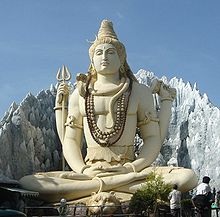Religious Organizations/Churches

Is there a centralized organization in Hinduism?
In the Christian tradition, the teachings based in the scriptures are normally passed down through a particular central organization or organizations. Oftentimes, each of these organizations claim that they are the exclusive disseminators of the scriptures and the truth of the scriptures and that only their particular preachers or teachers are legitimate or representatives of the absolute truth or God. So in that sense Christianity is highly centralized or ecclesiastical.
In Hinduism the system is completely different. There never has been nor is there now any central church or group of churches or temples which act as or claim to be the sole bona fide church/temple or religious organization.
Unlike the Christian system, the Hindu system is not an ecclesiastical system. It’s not a situation in which one converts to a particular church or temple or religious organization or body and by doing so becomes saved or a member of the saved group. In other words, one does not become “saved” or spiritually liberated or enlightened simply by joining a particular organization.
At the heart of Hinduism is the teaching that each individual is and must be responsible for his own spiritual liberation/salvation/enlightenment. No one can walk the spiritual path for you. This can be described as the principle of individual responsibility.
Central to Hindu thought is individual practice. And the most important aspect of individual practice is meditation. Through the process of meditation and contemplation along with hearing and studying scripture and living a life of karma yoga (using one’s life for the well-being of others, not just for oneself), one’s consciousness becomes gradually purified so that they come to realize their true identity, come to experience the deepest inner peace and happiness.
Therefore, in Hinduism, becoming a member of a particular religious organization or temple/ church is not a requirement, but rather may or may not be taken advantage of by an individual as a means to help them in their practice.
Amongst Hindus they frequently refer to themselves as followers of Sanatan Dharma. This is a very profound philosophical term or concept that refers to the natural expression and eternal nature of the soul itself, and therefore Hinduism is not something to “join” or learn but rather involves the gradual awakening of every individual’s eternal spiritual nature as an eternal loving servant of God.
In the Christian tradition, the teachings based in the scriptures are normally passed down through a particular central organization or organizations. Oftentimes, each of these organizations claim that they are the exclusive disseminators of the scriptures and the truth of the scriptures and that only their particular preachers or teachers are legitimate or representatives of the absolute truth or God. So in that sense Christianity is highly centralized or ecclesiastical.
In Hinduism the system is completely different. There never has been nor is there now any central church or group of churches or temples which act as or claim to be the sole bona fide church/temple or religious organization.
Unlike the Christian system, the Hindu system is not an ecclesiastical system. It’s not a situation in which one converts to a particular church or temple or religious organization or body and by doing so becomes saved or a member of the saved group. In other words, one does not become “saved” or spiritually liberated or enlightened simply by joining a particular organization.
At the heart of Hinduism is the teaching that each individual is and must be responsible for his own spiritual liberation/salvation/enlightenment. No one can walk the spiritual path for you. This can be described as the principle of individual responsibility.
Central to Hindu thought is individual practice. And the most important aspect of individual practice is meditation. Through the process of meditation and contemplation along with hearing and studying scripture and living a life of karma yoga (using one’s life for the well-being of others, not just for oneself), one’s consciousness becomes gradually purified so that they come to realize their true identity, come to experience the deepest inner peace and happiness.
Therefore, in Hinduism, becoming a member of a particular religious organization or temple/ church is not a requirement, but rather may or may not be taken advantage of by an individual as a means to help them in their practice.
Amongst Hindus they frequently refer to themselves as followers of Sanatan Dharma. This is a very profound philosophical term or concept that refers to the natural expression and eternal nature of the soul itself, and therefore Hinduism is not something to “join” or learn but rather involves the gradual awakening of every individual’s eternal spiritual nature as an eternal loving servant of God.